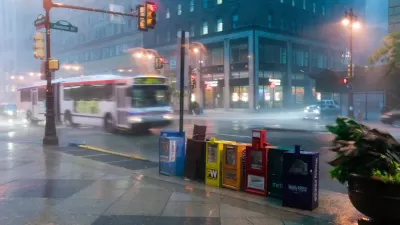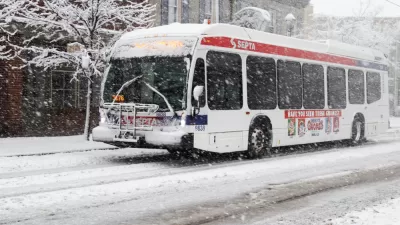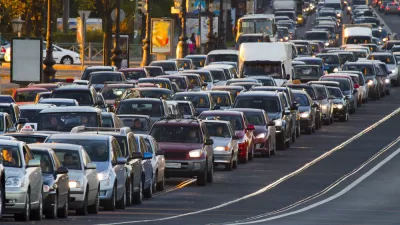Los Angeles’ 16 bus, which cuts across the city on Third Street through some of the city’s densest neighborhoods, will experiment with a new approach to service design.
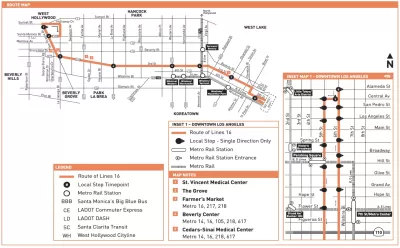
The Los Angeles County Metropolitan Transportation Authority (Metro) bus system is switching to “headway-based operation” to improve performance along a popular east-west route. The Metro 16 bus will operate without a schedule between 7 am and 5 pm on weekdays.
According to an article by Daniel Martinez for LAist, headway-based operations differ from Metro’s standard timetable bus service design schedule by focusing on the spacing between buses (i.e., headways), rather than a set schedule of departure and arrivals.
Martinez also explains how headway-based operations work in an era of real-time location technology:
Thanks to advances in technology, supervisors will monitor the intervals at departure, in the middle of the line, and at the end of service. Additionally, bus operators will have tablet displays that provide real-time feedback on when their pacing is good, when to slow down to increase the gap between buses, and when to speed up to avoid bunching.
Headway based operations can thus mitigate bus bunching—when several buses can pass in quick succession, leaving a longer-than-planned gap between headways.
“Similar headway based programs had been tried in other large cities like Honolulu, Austin, and Seattle,” according to Martinez, but Metro scrapped its own previous attempt at headway-based operations with the launch of rapid service back in the early 2000s.
FULL STORY: Can Buses Run More Efficiently Without A Schedule? Metro Wants To Test It Out

Planetizen Federal Action Tracker
A weekly monitor of how Trump’s orders and actions are impacting planners and planning in America.

USGS Water Science Centers Targeted for Closure
If their work is suspended, states could lose a valuable resource for monitoring, understanding, and managing water resources.
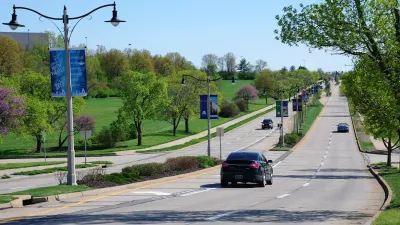
End Human Sacrifices to the Demanding Gods of Automobile Dependency and Sprawl
The U.S. has much higher traffic fatality rates than peer countries due to automobile dependency and sprawl. Better planning can reduce these human sacrifices.

Trump: Federal Government Won’t Pay for California HSR
The President has targeted federal funding for the California bullet train project since his first administration.

San Francisco Enhances Urban Planning Initiatives with Green Infrastructure
San Francisco incorporates green infrastructure in its city development initiatives, elevating the importance of sustainability in urban planning.

Chicago Approves Green Affordable Housing Plan
The Mayor’s plan calls for creating a nonprofit housing corporation tasked with building affordable housing that meets Green Building standards.
Urban Design for Planners 1: Software Tools
This six-course series explores essential urban design concepts using open source software and equips planners with the tools they need to participate fully in the urban design process.
Planning for Universal Design
Learn the tools for implementing Universal Design in planning regulations.
Tyler Technologies
New York City School Construction Authority
Village of Glen Ellyn
Transportation Research & Education Center (TREC) at Portland State University
Chaddick Institute at DePaul University
Institute for Housing and Urban Development Studies (IHS)
Regional Transportation Commission of Southern Nevada
Toledo-Lucas County Plan Commissions


























